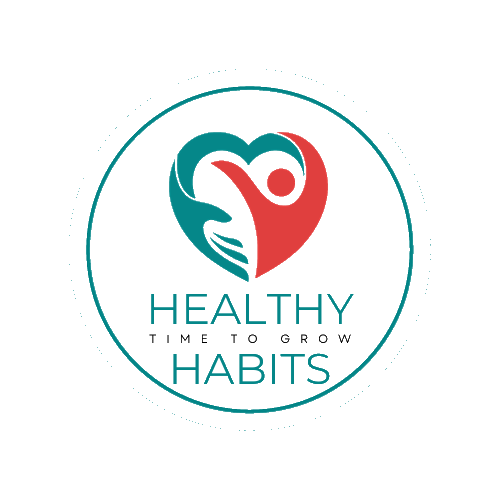
In the quest for weight loss, finding the best diet for weight loss can be a transformative experience. With a plethora of options available, it’s crucial to understand which dietary plan aligns with your health goals and lifestyle. Here, we will delve into the most effective diets for weight loss, backed by scientific research and expert opinions.
Understanding Weight Loss and Diet
Weight loss fundamentally revolves around the concept of caloric deficit—consuming fewer calories than your body expends. However, not all calories are created equal. The quality of your diet profoundly impacts your health and the efficiency of your weight loss journey.
The Mediterranean Diet: A Heart-Healthy Option

The Mediterranean Diet is lauded for its heart-healthy benefits and effectiveness in promoting weight loss. This diet emphasizes:
- Whole grains such as quinoa, barley, and oats
- Healthy fats from olive oil, nuts, and seeds
- Lean proteins including fish, poultry, and legumes
- Fruits and vegetables abundant in vitamins, minerals, and antioxidants
Studies have shown that the Mediterranean Diet not only aids in weight loss but also reduces the risk of chronic diseases like heart disease and diabetes. By focusing on whole, minimally processed foods, this diet helps regulate hunger and promotes satiety.
Low-Carb Diets: Reducing Carbohydrate Intake

Low-carb diets, including the Ketogenic Diet and the Atkins Diet, are highly effective for weight loss. These diets limit carbohydrate intake, forcing the body to burn fat for energy. Key principles include:
- High fat intake to induce ketosis (for ketogenic diets)
- Moderate protein consumption
- Low carbohydrate consumption, often below 50 grams per day
The ketogenic diet shifts the body’s metabolism from carbohydrates to fats, resulting in rapid weight loss and improved energy levels. However, it’s essential to follow this diet under medical supervision to avoid potential health risks such as nutrient deficiencies and kidney stress.
Intermittent Fasting: Timing Your Meals
Intermittent fasting (IF) is a popular method that involves cycling between periods of eating and fasting. Common approaches include:
- 16/8 method: Fasting for 16 hours and eating within an 8-hour window
- 5:2 method: Eating normally for 5 days and restricting calorie intake to 500-600 calories on 2 non-consecutive days
IF helps reduce overall calorie intake and improves metabolic health. Studies indicate that it can lead to significant weight loss and improvements in blood sugar levels, making it an effective strategy for both weight loss and overall health.
Plant-Based Diets: Focusing on Vegetables and Fruits

Plant-based diets, such as vegan and vegetarian diets, emphasize the consumption of plant-derived foods. These diets are rich in:
- Fruits and vegetables
- Whole grains
- Legumes and nuts
A plant-based diet is naturally low in calories and high in fiber, which can promote weight loss by enhancing satiety and reducing overall calorie intake. Additionally, these diets are linked to numerous health benefits, including lower risks of heart disease, hypertension, and certain cancers.
The DASH Diet: Dietary Approaches to Stop Hypertension
The DASH Diet was originally designed to combat hypertension but has proven effective for weight loss as well. This diet includes:
- Fruits and vegetables
- Whole grains
- Low-fat dairy
- Lean proteins
- Nuts and seeds
The DASH Diet emphasizes nutrient-dense foods that are low in sodium, saturated fats, and added sugars. Its balanced approach makes it a sustainable option for long-term weight loss and overall health improvement.
Paleo Diet: Eating Like Our Ancestors
The Paleo Diet is based on the presumed diet of Paleolithic humans. It focuses on foods that could be obtained by hunting and gathering, including:
- Lean meats and fish
- Fruits and vegetables
- Nuts and seeds
This diet excludes processed foods, grains, legumes, and dairy, promoting whole foods that are rich in nutrients and low in refined sugars. The Paleo Diet can lead to significant weight loss by eliminating high-calorie, processed foods and emphasizing natural, satiating foods.
Tips for Choosing the Best Diet for You
Selecting the best diet for weight loss involves considering several factors:
- Sustainability: Choose a diet you can adhere to long-term without feeling deprived.
- Nutritional Balance: Ensure the diet provides all essential nutrients to maintain overall health.
- Personal Preferences: Consider your food preferences and lifestyle when choosing a diet.
- Medical Conditions: Consult with a healthcare professional, especially if you have any underlying health conditions.
Combining Diet with Exercise for Optimal Results
While diet is crucial for weight loss, combining it with regular physical activity enhances results. Aim for at least 150 minutes of moderate-intensity exercise or 75 minutes of high-intensity exercise per week. Incorporate strength training exercises to build muscle mass, which boosts metabolism and aids in weight loss.
Conclusion: Your Path to Weight Loss Success
Finding the best diet for weight loss requires a personalized approach that considers your health, lifestyle, and preferences. Whether you choose the Mediterranean Diet, a low-carb approach, intermittent fasting, or a plant-based diet, the key is consistency and commitment. By combining a balanced diet with regular physical activity, you can achieve and maintain your weight loss goals while improving your overall health.

Pingback: Top Pre-Workouts with Natural Caffeine - The Healthy Habits Hub